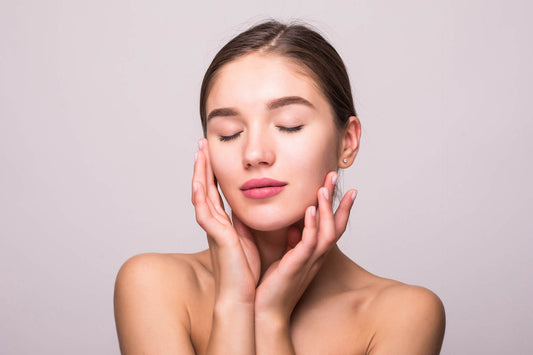So, you've probably seen the words "serum" and "moisturizer" floating around in the skincare world. But what do they actually do, and which one should you be using?
In this blog, we help you make sense of it all.
Related product:
What’s the Difference Between Serums and Moisturizers?
Think of your skin as a house. A serum would then be like some small, clinically concentrated treatment for issues in the house, like fixing the leaky roof or painting the room. The moisturizer is sort of like the roof or walls of the house, on the outside, that protects it from the outer elements and keeps it looking fresh.
Serums are very light, power-packed liquids, highly concentrated with ingredients that penetrate deep, past the first layer of your skin to deal with various concerns like wrinkles, acne, or uneven skin tone and texture. Some people might call them “the powerhouses” of skincare routines.
Moisturizers, on the other hand, are thicker creams or lotions that help hydrate your skin and form a protective barrier around skin. They seal in moisture and protect the skin from environmental aggressors. Moisturizers work for all skin types, including oily skin.
What Are the Benefits of Serum and Moisturizer Usage?
Serums are essentially the magicians of skincare, capable of addressing a wide range of concerns. They can:
- Target specific issues: Whether you're dealing with acne, wrinkles, or dullness, there's a serum tailored for you.
- Deliver potent ingredients: Packed with powerful active ingredients like hyaluronic acid, vitamin C, and retinol, serums work wonders on your skin.
- Improve skin texture: Serums can minimize pores, smooth skin texture, and enhance overall radiance.
Moisturizers are the backbone of any healthy skincare routine. They:
- Hydrate your skin: Keeping your skin well-hydrated helps prevent dryness, flakiness, and premature aging.
- Protect your skin: Moisturizers create a barrier between your skin and environmental elements, guarding against pollution and wind.
- Lock in moisture: By sealing in hydration, moisturizers maintain your skin's natural moisture balance.
What Is a Good Serum and Moisturizer Skincare Routine?
When should you use a serum, and when should you use a moisturizer?
As a general rule, apply serum before moisturizer. This allows the serum to penetrate your skin and deliver its benefits before the moisturizer seals it in.
If you have oily or acne-prone skin, you might be able to use just a serum.
Can You Use Serums and Moisturizers Together?
Absolutely! Using a serum and moisturizer together is recommended for optimal skin health. The serum addresses specific skin concerns, while the moisturizer hydrates and protects your skin, making them a powerful duo.
Consistency is key. To see real results, apply both serum and moisturizer regularly.
First, choose the right serum and moisturizer for your skin type. Ensure the ingredients cater to your specific concerns and suit your skin. With a bit of experimentation, you’ll find the perfect combination for your needs.
What’s Your Next Skincare Step?
By understanding the unique benefits of each product and incorporating them into your skincare routine, you're giving your skin the best possible chance to look and feel its best.
With regular use of both serums and moisturizers, you'll notice a significant improvement in your skin's overall health and appearance.
Now, go ahead and experiment with different serums and moisturizers to find the perfect combination for your skin type and concerns.




